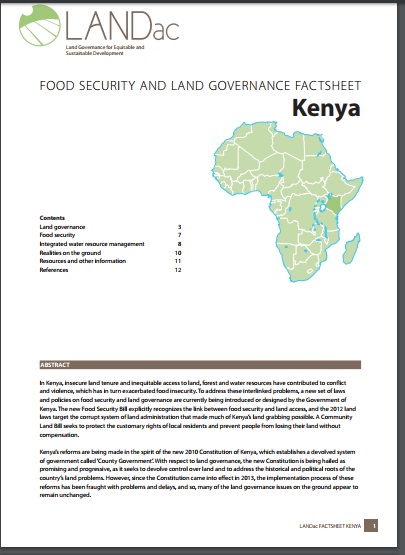Resource information
In Kenya, insecure land tenure and inequitable access to land, forest and water resources have contributed to conflict and violence, which has in turn exacerbated food insecurity. To address these interlinked problems, a new set of laws and policies on food security and land governance are currently being introduced or designed by the Government of Kenya. The new Food Security Bill explicitly recognizes the link between food security and land access, and the 2012 land laws target the corrupt system of land administration that made much of Kenya’s land grabbing possible. A Community Land Bill seeks to protect the customary rights of local residents and prevent people from losing their land without compensation. Kenya’s reforms are being made in the spirit of the new 2010 Constitution of Kenya, which establishes a devolved system of government called ‘County Government’. With respect to land governance, the new Constitution is being hailed as promising and progressive, as it seeks to devolve control over land and to address the historical and political roots of the country’s land problems. However, since the Constitution came into effect in 2013, the implementation process of these reforms has been fraught with problems and delays, and so, many of the land governance issues on the ground appear to remain unchanged.



